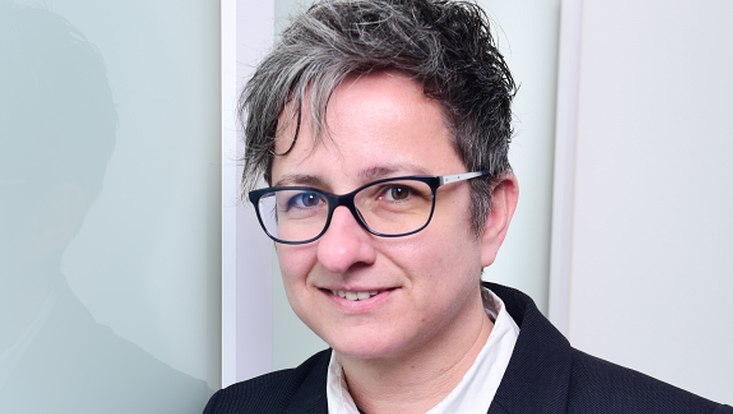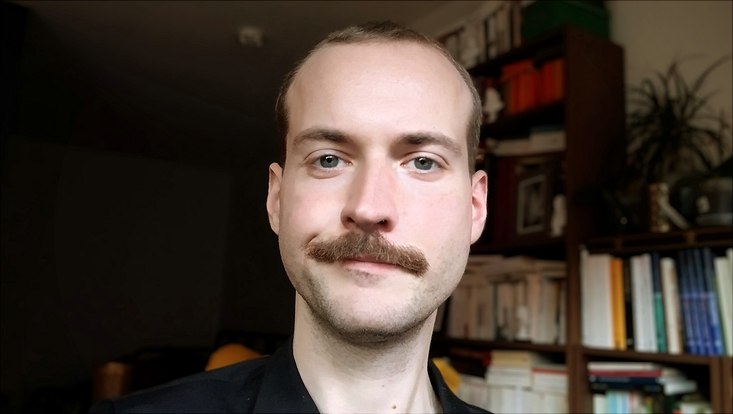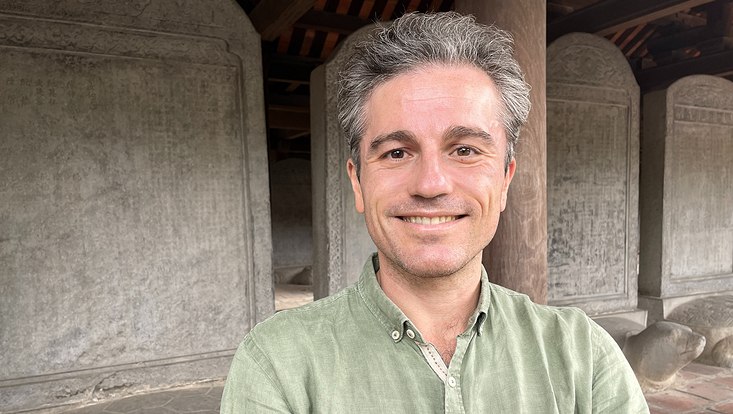“Welcome Aboard!”Making Sensible Use of Technology in EducationProf. Dr. Freydis Vogel strengthens the Department of Education.
4 April 2023, by Vogel/Red.

Photo: Private
Every year, Universität Hamburg welcomes numerous new researchers. This series introduces them and their areas of research. This time: education scholar Prof. Dr. Freydis Vogel
Prof. Dr. Freydis Vogel joined Universität Hamburg in summer following her tenure at the University of Nottingham; she is a professor of digitalization in education at the Faculty of Education.
My research area in brief:
The research topics I am working on are influenced by my interest in cooperative learning with digital technologies. Above all, the question arises as to how and under what circumstances cooperative learning can be successful or problems solved together that require the interplay of different, individual abilities.
Digital technologies come into play here in different ways. On the one hand, we are talking about the development of digital technologies that support cooperation, direct communication, or inspire activities that foster learning. On the other, in the rapidly changing digital world, new technologies are constantly being developed that require learners and teachers to keep learning new skills, for example, thanks to changing forms of communication.
This is how I explain my research to my family:
In most cases, I am the one interested in the experiences my conversation partners have had with learning using digital technologies. And because my research has close connections to their everyday lives, we quickly get to their use of digital technologies such as MS Teams, Moodle, email, or TikTok and their various experiences with cooperative learning.
Then I explain that there are many advantages to working with others to learn or solve problems, for example, that it is more fun or that you can support one another. This doesn’t always work well, however, and thus, I research which aids can best help learning groups reach their goals. I am especially interested in how digital programs on computers, tablets, or smartphones can be used sensibly when learning.
I mainly use these methods:
I conduct primarily quasi-experimental studies to compare the effects of different learning scenarios. In addition to individual learning successes in pre- and post-tests, I intensively analyze process data on the interactions between learners. Furthermore, I conduct meta-analyses in my research areas to gain a better overview of the currently available evidence on learning with digital technologies.
My research is important for society because:
Even if digitalization in the field of education has potential, there are ever-changing challenges when improving processes and offering solutions. And at least since the ubiquitous use of online learning during the pandemic and the public access to AI thanks to programs such as ChatGPT, the challenges linked to digitalization, especially in the field of education, have taken center stage.
With my expertise and future research in the field of digitalization in education, I would like to inspire the necessary interdisciplinary discourse, to shape it and to contribute to finding answers to questions such as “How can we sensibly use digital technologies in educational processes?” or “How and which digital skills should be taught?” or “What kind of support is helpful for the actors in formal and informal educational contexts?”Another not entirely separate issue is to highlight how, in an era of disinformation and bubbles on digital communication platforms we can form critical and multi-viewed opinions.This is why students should come to my lectures:
I am really looking forward to welcoming new students in my classes who are interested in the topics of digitalization and education. I give clear insights into my own research and the projects of cooperation partners beyond Hamburg’s borders.
I am also really interested in topics that the students themselves are passionate about and in my classes, I support and guide students in their efforts to achieve their individual learning goals. As we can no longer conceive of education processes without digitalization, I can only recommend that all students in the Faculty of Education take advantage of my courses to explore the possibilities of digital technologies in education and to reflect critically upon the associated challenges.
These are my plans at Universität Hamburg:
In the field of digitalization in education in particular, I would like to strengthen the position of the Faculty of Education at Universität Hamburg. Above all, this should be possible through good networks with other faculties and institutions that can contribute their own specific views and expertise on the topic of digitalization. Interdisciplinary exchange lets us develop new approaches to digitalization that the faculty can implement and try out for education.
Reaching out to the world: I work with the following international and federal institutions and universities:
Thanks to my previous work abroad and my involvement in international scholarly communities, for example, as a coordinator in the European Association for Research on Learning and Instruction, I have a wide-ranging network. Thanks to my time in Great Britain, I work with colleagues at the University of Nottingham and the University of Cambridge. In Japan, I am currently intensifying cooperation with colleagues at Senshu University and Shizuoka University. I am also working with researchers in the United States who are working, for example, at Indiana University Bloomington and Penn State University. Thanks to my involvement in the International Society of the Learning Sciences, I have a large number of international contacts to researchers who are primarily concerned with research on teaching and learning with digital technologies.
In Hamburg, the city and the University, I am looking forward to:
So far, I have seen Hamburg only on trips and the city has always fascinated me, especially the harbor, the many cultural activities, the changing weather, the straightforwardness, openness, and diversity of the people I have met. I am now looking forward to being a part of that and to encountering at the University and among my colleagues and students the things that also fascinate me.


